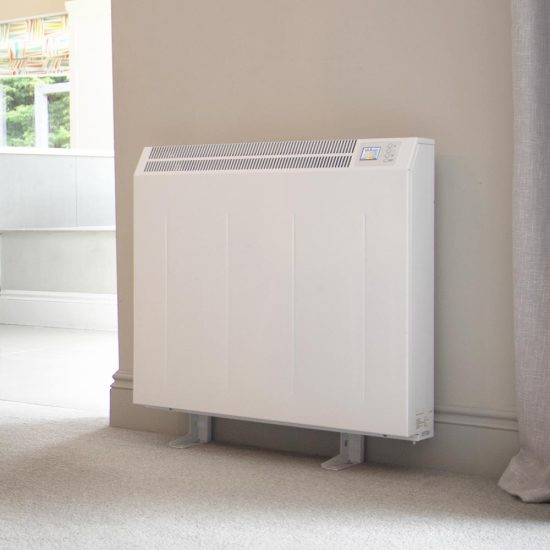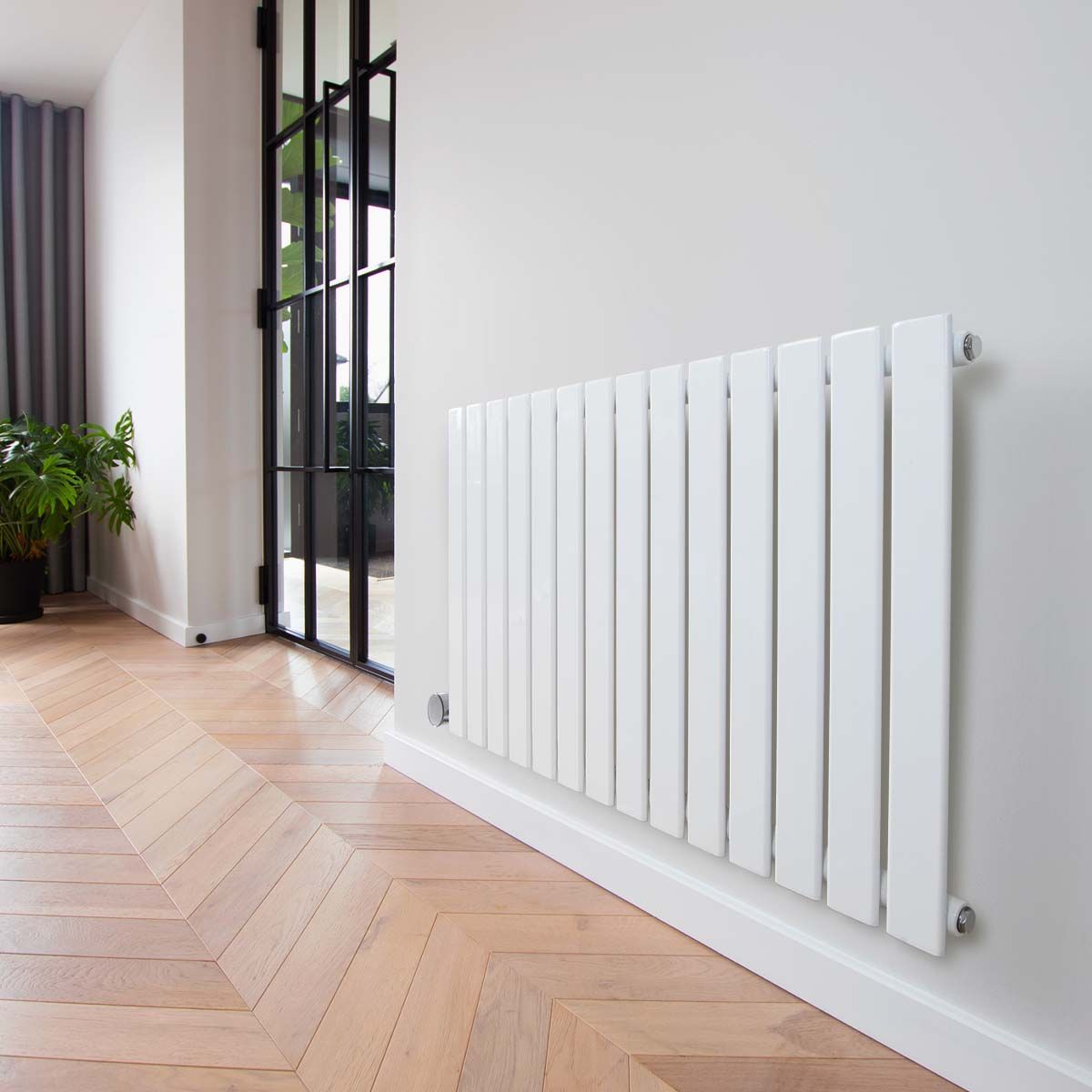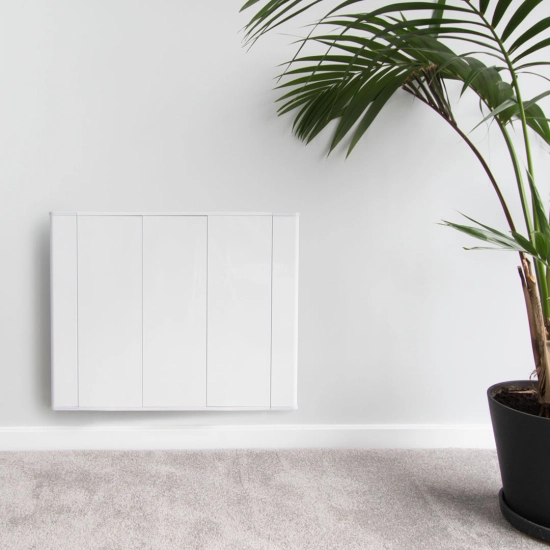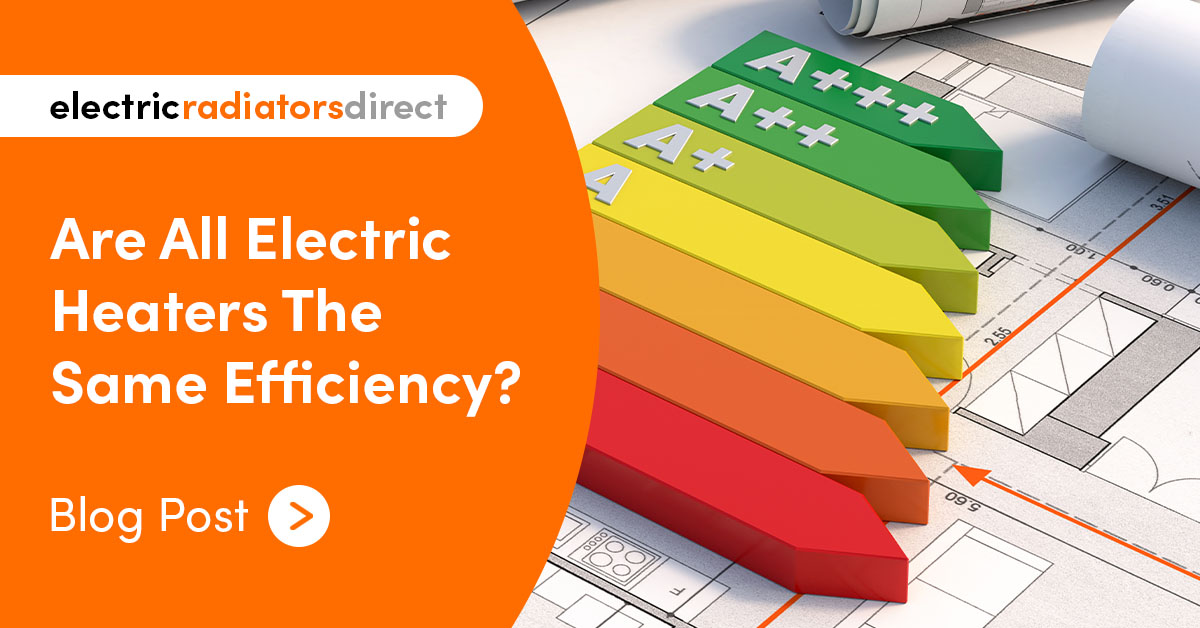

Last updated: March 2024
Efficiency is key when it comes to electric heating and it can be achieved in a number of ways, whether it’s through the type of heating technology used or the programming and control options available. It’s one of the most important aspects of any heating appliance, but does that mean all electric heaters offer the same efficiency? It’s time to find out.
What does efficiency mean?
Efficiency is defined as being able to produce something, such as heat, with very little effort and without wasting energy. Basically, it is determined by measuring the level of input needed compared to the level of output given. The more waste generated during this process, the less efficient a product will be, so the ideal outcome is for an appliance to convert all the energy it uses into something productive without letting anything go to waste. The question is, are all electric heaters able to do this?
How are electric heaters efficient?
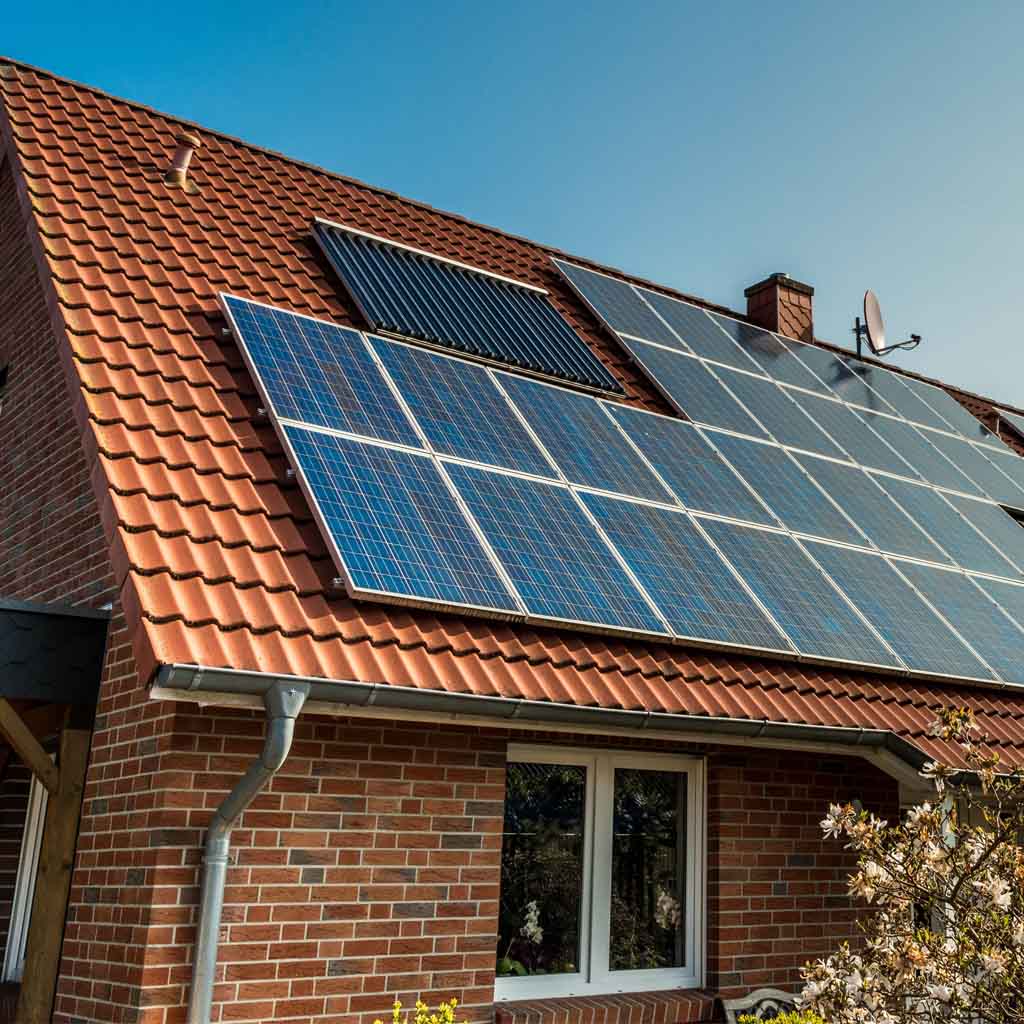

Electric heaters are 100% efficient at point of use as they convert every watt of electricity taken from the wall into usable heat, meaning there’s zero waste. In this sense, all electric heaters do in fact have the same efficiency. Sounds perfect right? Well, it’s not quite as cut and dry as that. We’ve also got to look at other factors that contribute to this. For example, generating electricity through a renewable energy source such as wind or solar power is much more efficient than generating it through the burning of fossil fuels, meaning any heater that uses this power will be more efficient too. This is just one way efficiency can be measured, but there are other aspects for us to take a look at as well.
Convection vs radiation: which is more efficient?
You should always check whether an appliance provides warmth through convection or radiation. This is because these methods vary quite differently and it’s important to make sure you’re choosing the right one for your space.
Check out our video exploring the three methods of heat transfer – conduction, convection and radiation – looking at how they work and why they matter when deciding which electric heater is best for your home.
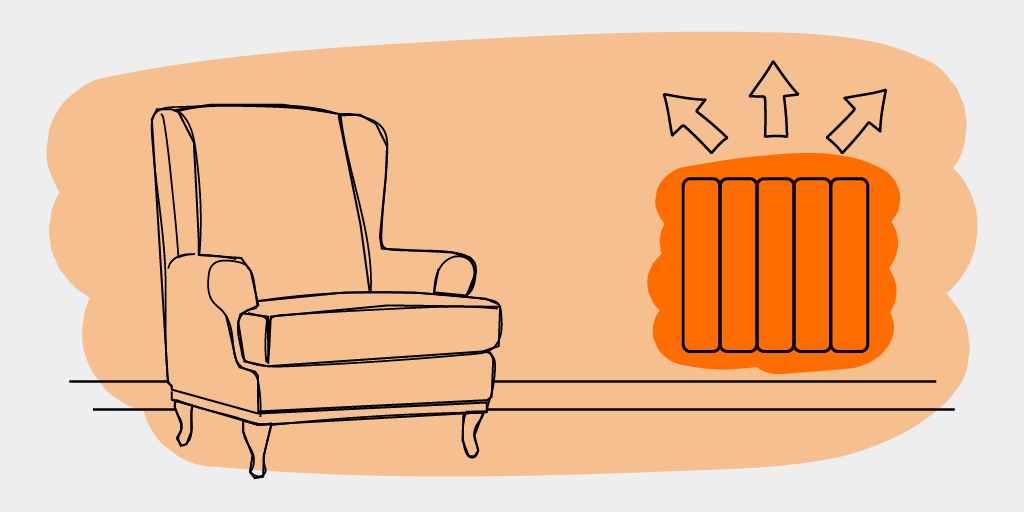

Convection
Convection warms the surrounding air and is a quick way to get your room up to temperature. Heaters that use convection are highly responsive, heating and cooling fast to match your needs, but they aren’t the most efficient heaters on the market. The warmth produced can be easily lost to open windows and doors, meaning there’s an increased chance of wasted heat. As a result, you may end up keeping your appliance on for much longer than you would like to in order to stay warm, which will increase energy usage and running costs. Convection-based heaters are perfect on a temporary basis, such as in the spare bedroom, but there are better options for a permanent solution.
Which heaters use convection?
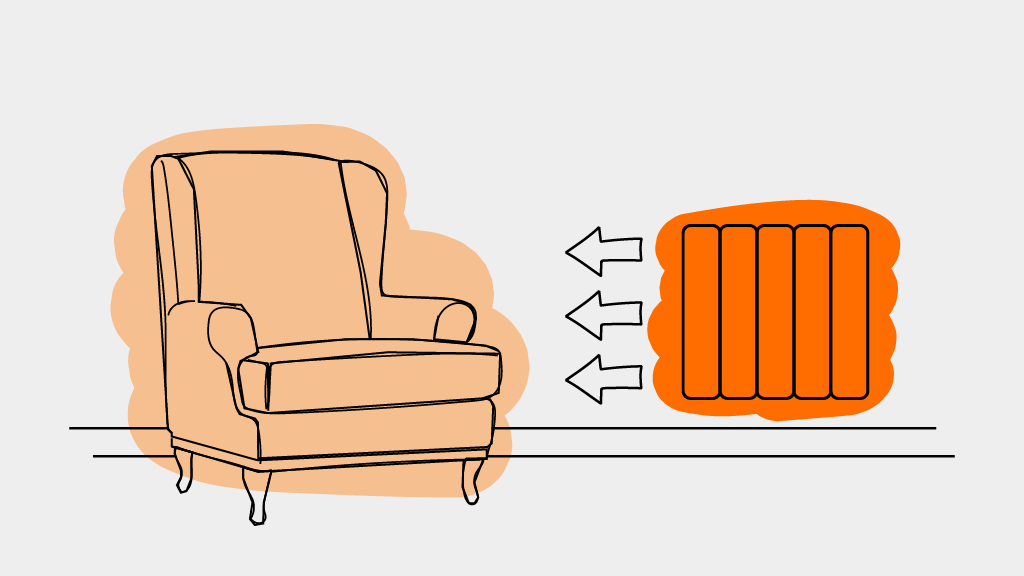

Radiation
This method of heating supplies a deeper level of warmth that is easily absorbed by surrounding objects and surfaces. Radiant warmth mimics the heat we feel on a daily basis, whether it’s the heat our bodies emit or the warmth of the sun. It doesn’t need to heat the air as it travels in a wave to provide comfortable and effective warmth, heating the very fabric of your home instead. This means waste is kept to a minimum as the warmth isn’t as easily lost compared to a convection-based system. It provides long-lasting warmth that can even be felt after the heater has been switched off, which is what makes it an efficient solution overall.
Which heaters use radiation?
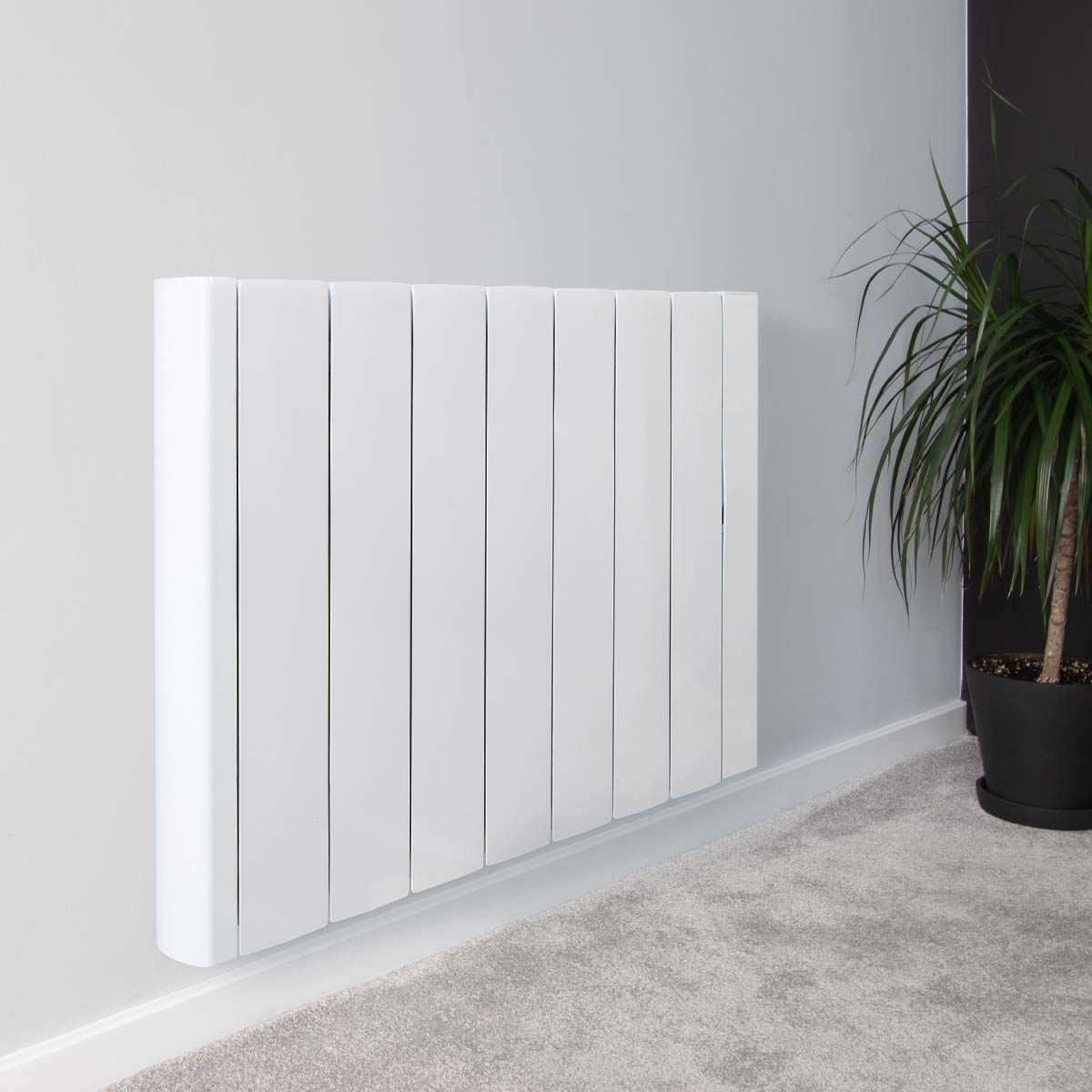

Usually a third of their heat comes from radiation, and with ceramic radiators it’s around 50%.
Radiant warmth is the winner here – any electric heaters that use at least some level of this warmth are less prone to heat loss and therefore provide better efficiency.
The way convection heaters work means that by nature, they’re less efficient than other electric heating solutions. Let’s run down why this is, and how you can still make traditional convection heating work for your home.
How can control contribute to efficiency?
Control is important because it gives you scope to manage your heating with better precision which will help to minimise energy usage and running costs. This is why electric heaters with advanced controls are often thought to be more efficient than those without.
Some key control features you should look for when buying an electric heater include:
Precision digital thermostat
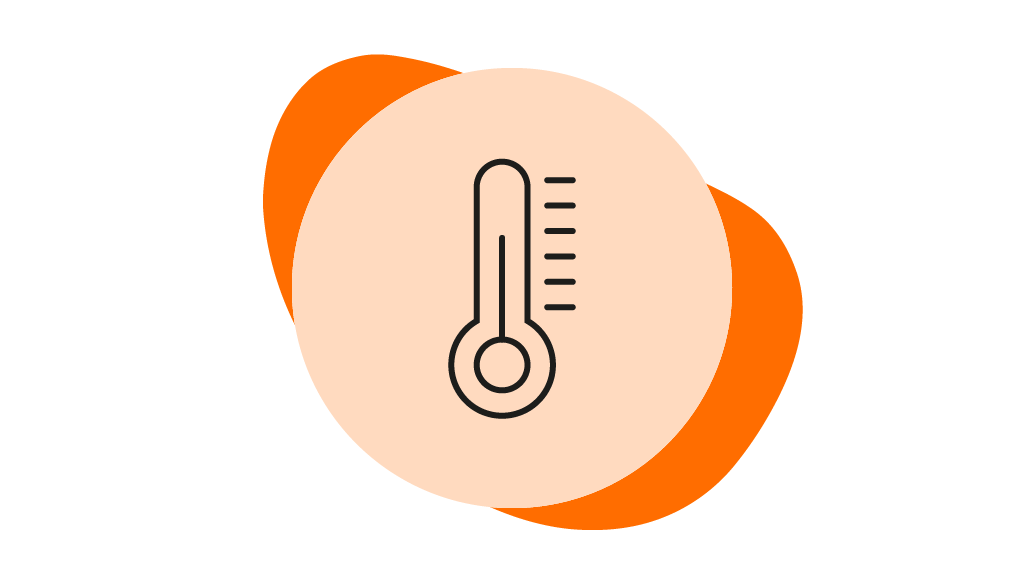

This constantly monitors the room to maintain your desired temperature setting, providing accurate readings with little space for fluctuation. It won’t drift from your set temperature, so you don’t have to worry about energy waste as a result of overheating your home.
24/7 programming


This gives you the ability to set up a heating schedule to match your routine so you only heat your home when it’s needed, for example, in the evenings and on weekends.
WiFi control
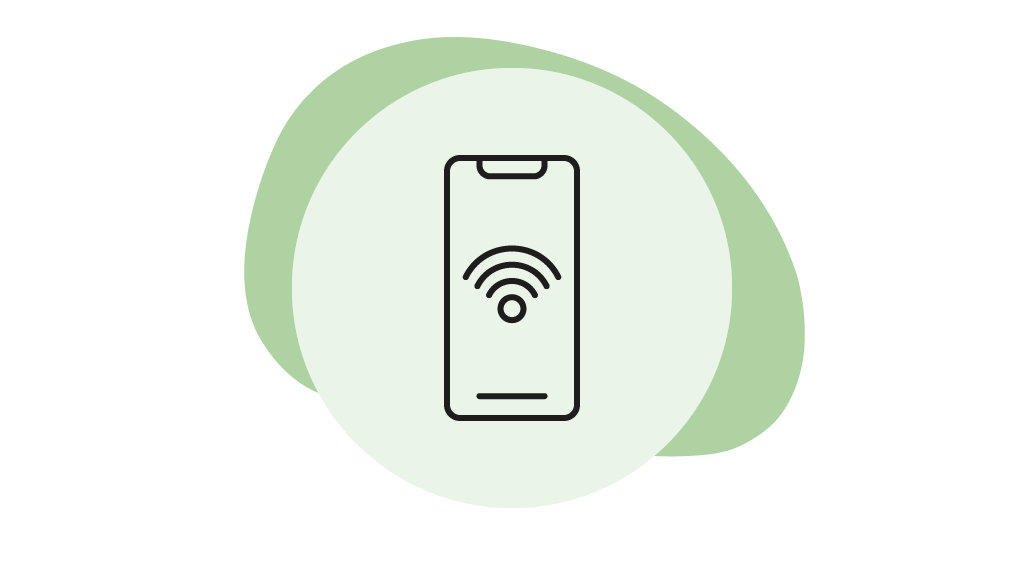

This gives you access to a whole host of features and lets you program your heating using your phone or tablet. As long as you have the compatible app downloaded and access to the internet, you can manage your heating no matter where you are in the world. So, you never have to worry about wasting energy heating your home at the wrong time.
Open window detection
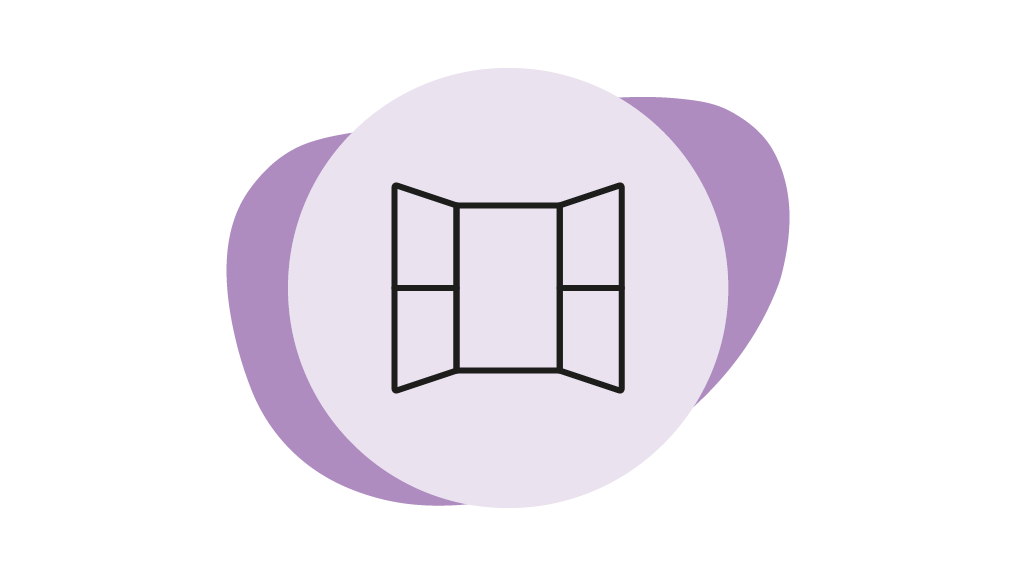

This senses any sudden drop in temperature and temporarily switches the heater off until a stable temperature is reached, ensuring heat isn’t lost through open windows or doors.
Energy usage statistics


A function that makes it easier to stay on top of your energy consumption so that you can see where to make changes.
Motion sensor


The radiator turns on when it detects movement and turns off after a period of inactivity. This means the radiator is managing itself rather than relying on manual adjustment or a pre-set schedule, so you're less likely to waste energy heating up rooms that aren't in use.
Check out our video where we delve into how and why electric heating is 100% efficient.
Choose Electric Radiators Direct for efficient heating
While all electric heaters are equally efficient at point of use, that doesn’t mean they’re all the same. Programming and heating technology add a lot in the way of efficiency, so it’s worth keeping this in mind when it comes to purchasing your next electric heater.
Key learnings
- Electric heaters are 100% efficient at point of use as they convert every watt of electricity taken from the wall into usable heat, meaning there’s zero waste.
- Electric heaters like electric radiators and infrared panels that use at least some level of radiant warmth are less prone to heat loss and therefore provide better efficiency.
- Sophisticated features like 24/7 programming and WiFi control are important because they give you scope to manage your heating with better precision which will help to minimise energy usage and running costs.






